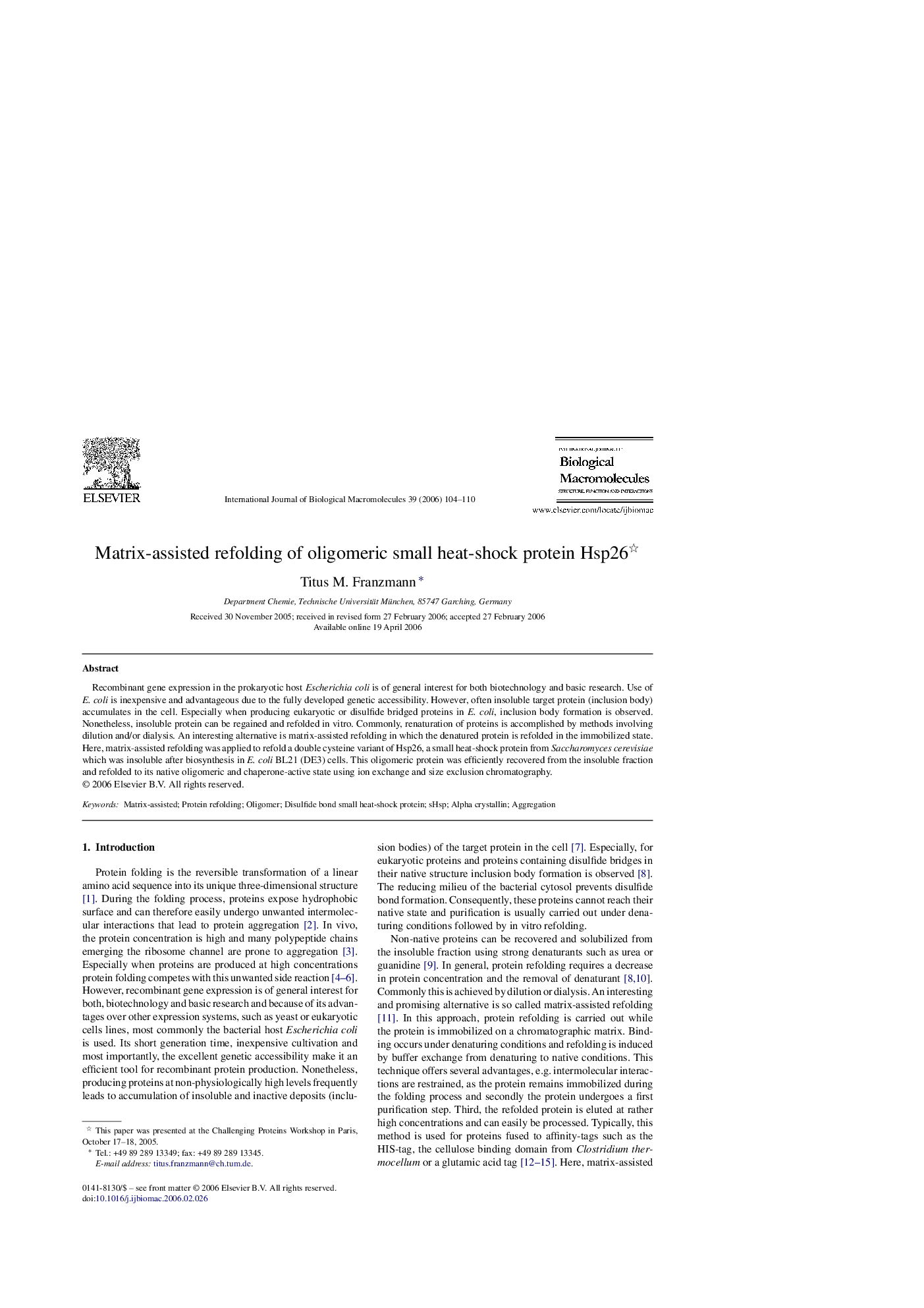| Article ID | Journal | Published Year | Pages | File Type |
|---|---|---|---|---|
| 1988102 | International Journal of Biological Macromolecules | 2006 | 7 Pages |
Recombinant gene expression in the prokaryotic host Escherichia coli is of general interest for both biotechnology and basic research. Use of E. coli is inexpensive and advantageous due to the fully developed genetic accessibility. However, often insoluble target protein (inclusion body) accumulates in the cell. Especially when producing eukaryotic or disulfide bridged proteins in E. coli, inclusion body formation is observed. Nonetheless, insoluble protein can be regained and refolded in vitro. Commonly, renaturation of proteins is accomplished by methods involving dilution and/or dialysis. An interesting alternative is matrix-assisted refolding in which the denatured protein is refolded in the immobilized state. Here, matrix-assisted refolding was applied to refold a double cysteine variant of Hsp26, a small heat-shock protein from Saccharomyces cerevisiae which was insoluble after biosynthesis in E. coli BL21 (DE3) cells. This oligomeric protein was efficiently recovered from the insoluble fraction and refolded to its native oligomeric and chaperone-active state using ion exchange and size exclusion chromatography.
